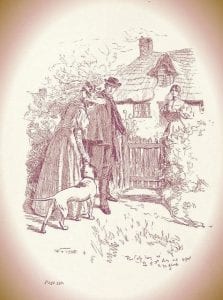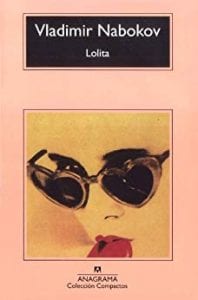Do readers like the characters you create? Do they have redeeming qualities even if they do terrible things? Do readers “bond” with your characters? Are they sympathetic or pathetic? What makes a “likable” character? Today, I am reposting commentary from author and writing coach Marylee MacDonald. In her always enlightening comments on writing, she raises those questions and provides some revealing answers. Read on. You will not be disappointed.
What The Heck Are Likable Characters?
by Marylee MacDonald
Have you heard the term “likable characters” tossed around in your book group or circle of writing friends? If you’ve been in the writing biz any length of time, you may have even received e-mails from agents: “I didn’t find the protagonist likable” or “I just didn’t fall in love with your character.”
Fifteen or twenty years ago, I’d never heard the term “likable characters”. Then I began hearing it, and hearing it more often as my friends and I tried to find agents.
For a long time I struggled to discern the meaning of “likable characters.” Now I understand that agents and editors use “likable characters” to describe a feeling of distaste.

“Likable characters” is shorthand for “I g,ot no pleasure from reading about these people.” The term is a signal that the agent would not enjoy living vicariously with your imaginary friend.
The Importance Of The Reader Bond
Agents, and readers in general, want to like and bond with your characters, especially your main character. In this blog post I’m going to talk about character likability and reader bonding.
What makes readers like some characters and detest others? I’m not speaking about villains here. We all know that a good villain is one readers love to hate. I’m talking about protagonists. These are the folks readers are supposed to cheer for. Flawed they may be, but on the whole our protagonists must capture readers’ hearts.
In case you’d like more on this subject, I’ve put together a free report on creating fictional characters. TIPS ON CREATING MEMORABLE CHARACTERS
An Empathy Exercise On Likable Characters
Let’s start with an empathy exercise, meaning let’s see how it feels to stand in published author’s shoes. Imagine you’re the author of a published book, and you’re glancing through Goodreads to find out how average readers feel about your latest offering. (At the bottom of this page, you’ll find the authors’ names.)
******************************************************************************
Writer #1
- These stories are dreary and devoid of any joy, humor, hope or beauty.
- What’s the point of wasting time in a book where you can’t relate to any of the characters??!
- …the stories are…brutal in a deep, almost subconscious, unintentional way, and they lack empathy
Writer #2
- Some stories are developed enough to impart quiet wisdom; others, though, are mere sketches, with one-dimensional characters and pat, trite resolutions.
Writer #3
- I disliked the character of Abby and despised her mother-in-law…
- I kept reading hoping that the plot would lead to some redemption—did not happen.
- Why should I care about these shallow characters that I haven’t developed any kind of connection to?
Writer #4
- He writes dialogue as if he hasn’t actually talked to another person in months, much less a woman in her twenties, like his main character.
- The characters are pretty unbelievable. All the female characters are described as beautiful but mostly neurotic or actually insane.
Writer #5
- The female characters are terribly drawn, with a misogynistic undertone…
- Plotless, misogynistic garbage with a dismal worldview.
- Not much depth to the characters, especially the women –the term “misogynist” frequently came to mind.
What did you think as you read these verdicts? Punch in the gut, right? So, listen up because you don’t want these kinds of comments about your book.
Create Likable Characters Right From The Start
One of the biggest puzzles for all authors is how to make readers and agents fall in love with our characters. We love our imaginary people, warts and all. Our characters are our children. But, readers do not necessarily have to love the little brat throwing a tantrum in the grocery store. Readers lead busy lives, and they make snap judgments. They won’t wade through an entire book waiting for the payoff–the day when the brat turns into an angel.
To be blunt about it, readers do not like characters who are negative, nasty, bitter, stuck, depressed, or hopeless. This makes common sense. If we have a friend caught in an endless loop of negativity, we give up on them. It’s no fun to hang out.
When you’re writing, try to avoid having the following:
- shallow characters;
- clichéd characters;
- misogynists, racists, or homophobes. *****************************************************************************
The Issues of Misogyny and Stereotypical Females
Let’s start with the issue of misogyny. Readers say that Writers #4 and #5 objectify women. Is each of these (male) authors attempting to create a misogynist like Humbert Humbert in Nabokov’s Lolita?
“Lolita, light of my life, fire of my loins. My sin, my soul.”
The opening of Lolita is one of the most evocative first lines in fiction. We forgive Humbert Humbert, the old reprobate, because he is unrepentant, and because he is funny and self-aware. One difference between his book and the two books maligned by the reviewers above could be this: Right from the beginning, Lolita is a particular girl, not an amalgam of body parts.
In workshop manuscripts I often see women reduced to a few physical characteristics, those that might ignite that Humbertian flame in a man. Even so, I’m sorry to see readers faulting Junot Díaz. (Oops! I let the cat out of the bag.) He’s really one of our finest writers. Maybe it’s as one of the Goodreads’ reviewers said: Díaz himself has admitted he can’t write women.
If a male writer can’t write women, that’s a problem. The female half of his readership won’t make a strong emotional connection with the characters he creates. It’s all too easy for men to project their sexual fantasies onto women, and women can spot that a mile away.
It may also be true that readers’ tastes have changed. Nabokov was a writer of his time. As writers in our contemporary world, we know that words have the power to wound. It’s not a matter of political correctness, but of empathy. We want to have empathy for all the characters in our books, to have that kind of deep understanding that creates a close author-reader bond.
By the same token, women writers need to watch out for creating shrill, bitchy females. The evil mother-in-law. The catty sisters. If you read between the lines of what the readers above are saying, you’ll see that readers don’t like stereotypical females. These characters hearken back to the way we felt about cliquish girls in seventh grade.
Let’s endow our characters of all genders, races and sexual orientations with the dignity and complexity of real people. If we do that, we can give readers what they desire.
Readers want to see themselves in the characters they’re reading about. If a woman can’t recognize herself in a book she’s reading, that creates a problem for the author. Bad reviews.
Readers Want To See Themselves
If readers want to read about folks who are, in some way, “like” them, then it follows that these characters must be “likable.” This doesn’t mean characters have to be Miss Goody Two-Shoes, but it does mean the characters should have positive characteristics.
Why? Because readers are more likely to bond with goodhearted characters. Characters who have a pure heart also generally have a conscience. Conscience and purity are admirable qualities that spill over into other aspects of a book. A character with integrity allows you, the author, to plant a moral compass at the very center of your plot. Readers who crave redemptive endings will be looking for that.
The Imaginary World
We’re writers, but we’re readers, too. As readers we step outside our ordinary lives. We accept the writer’s invitation to live inside her or his world. In exchange for the gift of our time and attention, we want several things:
- characters from whom we cannot look away;
- characters we can like, admire, and cheer for;
- characters who show something pure about themselves;
- characters who are multi-dimensional;
- and characters with whom we can identify.
Take yourself back to childhood, and remember the characters you loved and the magic you found in books. If you can create that same magic for readers, you’ll earn their loyalty.
Answer Key
Writer #1 is Alice Munro, winner of the Nobel Prize for Literature. This beloved Canadian writer obviously hasn’t won over everyone.
Writer #2 is Maeve Binchy. This prolific and bestselling author may have gotten a bit lazy.
Writer #3 is Anne Tyler. Anne Tyler is one of my favorite authors, and I’ve often used her novel, Ladder of Years, as an example of how to plot. Her latest book, A Spool of Blue Thread, didn’t grab readers the way her earlier books did. Note that readers react to the female characters the way they would to people they actually know.
Writer #4 is Jonathan Franzen. Readers panned his latest book Purity. “He is a member of the American Academy of Arts and Letters, the German Akademie der Kunste, and the French Ordre des Arts et des Lettres.”
Writer #5 is Junot Díaz. ” He is the author of the critically acclaimed Drown, The Brief Wondrous Life of Oscar Wao, which won the 2008 Pulitzer Prize and the National Book Critics Circle Award, and This Is How You Lose Her, a New York Times bestseller and National Book Award finalist. He is the recipient of a MacArthur “Genius” Fellowship, PEN/Malamud Award, Dayton Literary Peace Prize, Guggenheim Fellowship, and PEN/O. Henry Award.”
You can find more of Marylee’s thoughts on writing at her blog: www.maryleemacdonaldauthor.com



